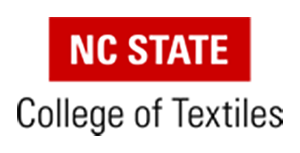RESCHEDULED: Thursday, December 2, 2010
For the last ten years, TriLUG has been operating as a NC non-profit corporation. In the early days, that structure was necessary because the LUG accepted donated hardware and re-donated it to schools and local LUG's. Since then, Linux has become more mainstream, accepted at corporations, and sometimes even used at schools. And in that time, TriLUG's mission has changed significantly, from being an incubator to more of an educational/technical/social group.
We're still devoted to education and outreach, promoting the use of free and open source software. However, as a business, the main income and expenses that we maintain are related to pizza and meetings.
We are entirely a volunteer-run organization. The Steering Committee members dedicate a lot of time to putting together quality programs for the members to learn from and enjoy. But there is also an overhead associated with running the LUG, and that involves paperwork, taxes and corporate filings.
Complicating matters is the fact that we are run by a collection of volunteers that changes every year in May. As the LUG's leadership undergoes its annual transition, we rely on effective hand-off's. Over time, the Steering Committee has been focused on tactical problems: where to find speakers, the price of pizza, finding donors and sponsors. In the meantime, some of the hand-off's and administrative tasks have taken a back seat. In fact, we have sometimes been delinquent in some of our administrative duties. This is not a recent problem... it has persisted for several years.
The meeting on 12/2 is for interested LUG members to discuss the current state of the LUG as an organization, and to brainstorm on possible changes that might make reduce our administrative overhead. We will not be planning meeting content or sysadmin duties or other tactical things -- this meeting is strategic. It's the boring stuff -- paying taxes, filing paperwork.
The "fun" stuff -- meetings, events, technical discussions, and so on -- will continue as normal.
DATE - Thursday, December 2, 2010
TIME - 7:00pm
LOCATION - RedHat HQ
ROOM - Cafeteria / Conference Room (where we normally meet)
DIRECTIONS - http://www.redhat.com/about/contact/ww/americas/raleigh.html
UPDATE: A full audio recording (2hrs, 50mins) of the meeting can be found at:
http://www.trilug.org/media/ trilug-organizational-mtg-2010-12-01.wav



